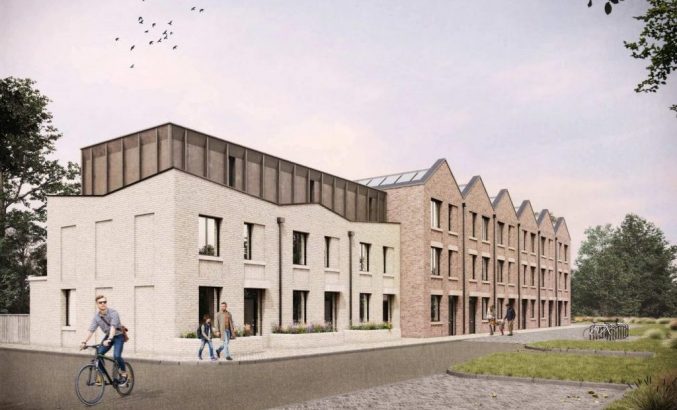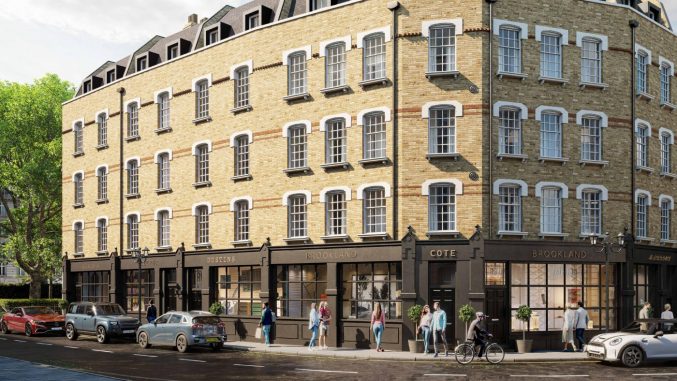Surprise house price bounce back sets new record
By Laura Miller

Property prices rose to a new record in February, beating expectations that the previous month’s dip would start a downward trend for the market
Annual house price growth rebounded to 6.9% from 6.4% in January, according to the Nationwide House Price Index.
Prices were up 0.3% month-on-month, more than erasing the small decline seen in January, as buyers continued to push through in an attempt to benefit from the stamp duty holiday.
The average price of a house, according to Nationwide, is now £231,061, highest on record.
Anna Clare Harper, chief executive of asset manager SPI Capital, said: “Stamp duty has a more than proportionate impact on transactions, because affordability is heavily influenced by mortgage lending and investors and homebuyers can borrow against the property price, but they cannot use finance to fund transaction costs.”
The proposed government extension to the temporary stamp duty reduction would likely continue to boost the housing market in terms of transactions and pricing.
Other contributing trends – cheap debt due to very low interest rates, pent-up supply and demand, desire to improve surroundings and a ‘flight to safety in a perceived stable asset with low volatility – are likely to hold up throughout 2021 and support prices, she added.
The stamp duty holiday is earmarked to end on March 31 so buyers agreeing purchases now would struggle to make the Tomer Aboody, director of property lender MT Finance, said the increase in house prices in February further confirms that demand in the market is such buyers are prepared to miss the deadline and pay the duty if it means getting that new home.
“Many properties have already increased in value over the past 12 months, making the stamp duty saving less relevant anyhow,” he said. Chancellor Rishi Sunak in tomorrow’s Budget is expected to announce an extension of the stamp duty holiday, and possible further support from the government for buyers at high loan-to-values. “Let’s hope he delivers, boosting the market, and wider economy, further still,” said Aboody.
Housing needs have changed as a direct result of the pandemic for many people, with many opting to move to less densely populated locations or property types, despite the sharp economic slowdown and the uncertain outlook.
“As a result, the outlook for the housing market is unusually uncertain,” according to Nationwide’s chief economist Robert Gardner. “There is scope for shifting housing preferences to continue to boost activity, especially if there is further policy support in the Budget, but nevertheless, if labour market conditions weaken as most analysts expect, it is likely that the housing market will slow in the months ahead,” he added.
Jeremy Leaf, north London estate agent and a former RICS residential chairman, has seen the pre-Christmas home-buying frenzy replaced by measured decision making in a market where supply and demand is becoming more balanced.
“A combination of better weather, positive Budget prospects, vaccination rollout and easing of lockdown restrictions, is adding to optimism, irrespective of the ending of the stamp duty holiday in March,” he said. He expected to see a dip in transaction numbers in the short term but in the medium term more activity, as sellers are increasingly tempted to put their properties on the market, reflected in recent higher market appraisal numbers.
Lenders have now got to grips with working from home and increased demand from buyers, and are much better place service-wise, Mark Harris, chief executive of mortgage broker SPF Private Clients, said. “Their overall confidence in the market as the vaccination programme is rolled out and we slowly emerge from this latest lockdown, means we have seen a welcome broadening of criteria in some areas,” he added.
Stimulus measures won’t be in place forever though, and a market correction looks inevitable, say some.
Guy Harrington, CEO of residential lender Glenhawk said lifelines for the property market “have to be accompanied by wider spending programmes that continue to protect employment and consumer spending, otherwise the second half of the year could be a painful one”.

Laura Miller is a freelance journalist who writes about money and business. She regularly appears in UK national and trade newspapers and magazines, and has previously worked for ITV News and the Telegraph among others. Find her on twitter @thatlaurawrites










You must be logged in to post a comment.